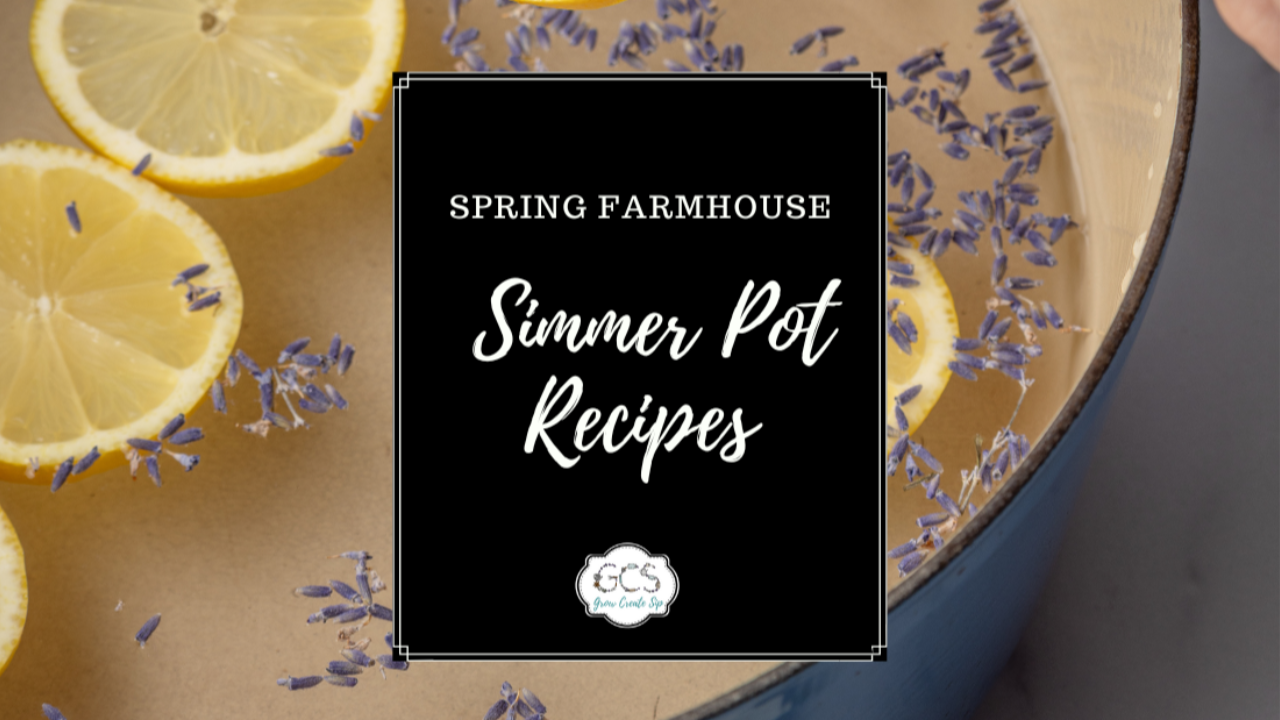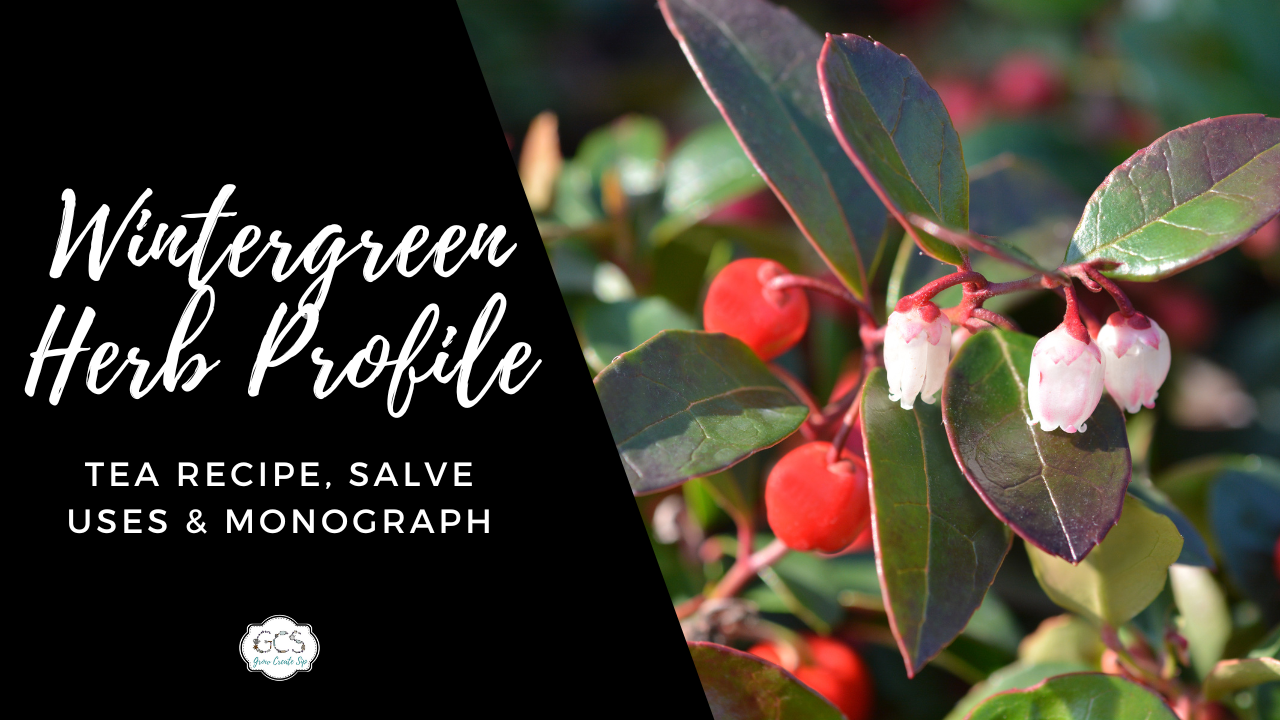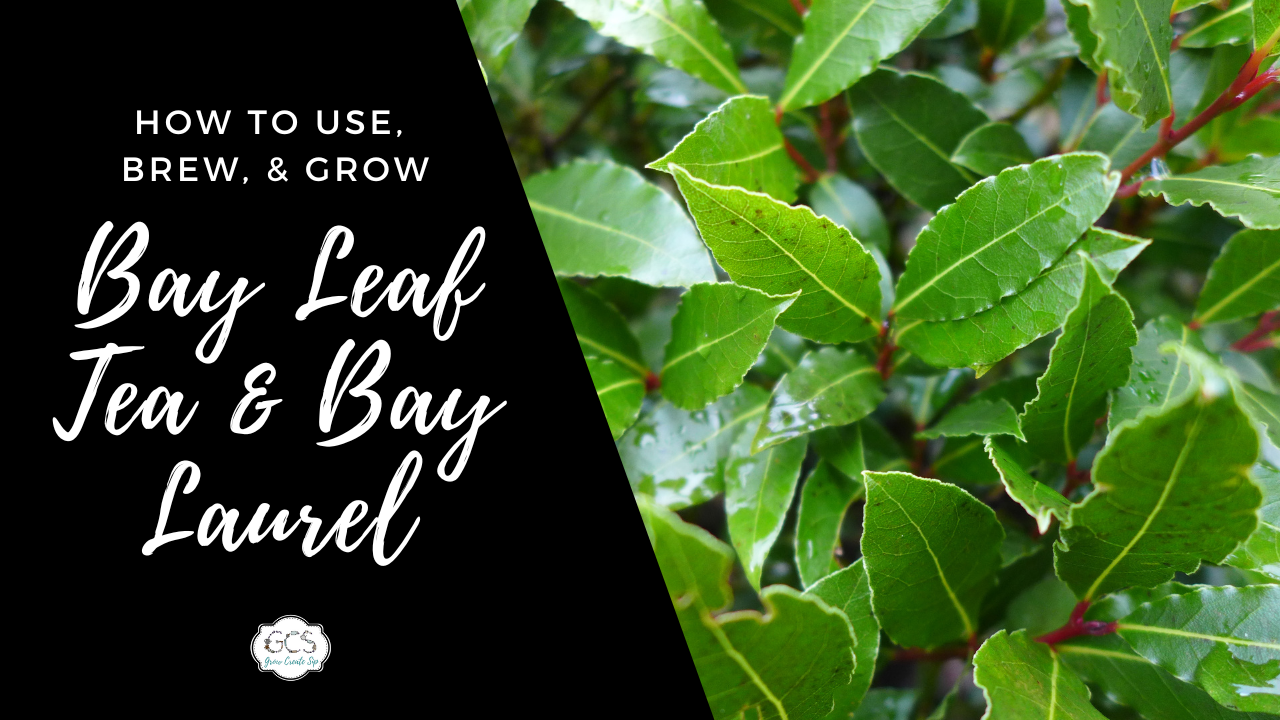Best Ways for Storing Herbs After Dehydration
Jul 07, 2020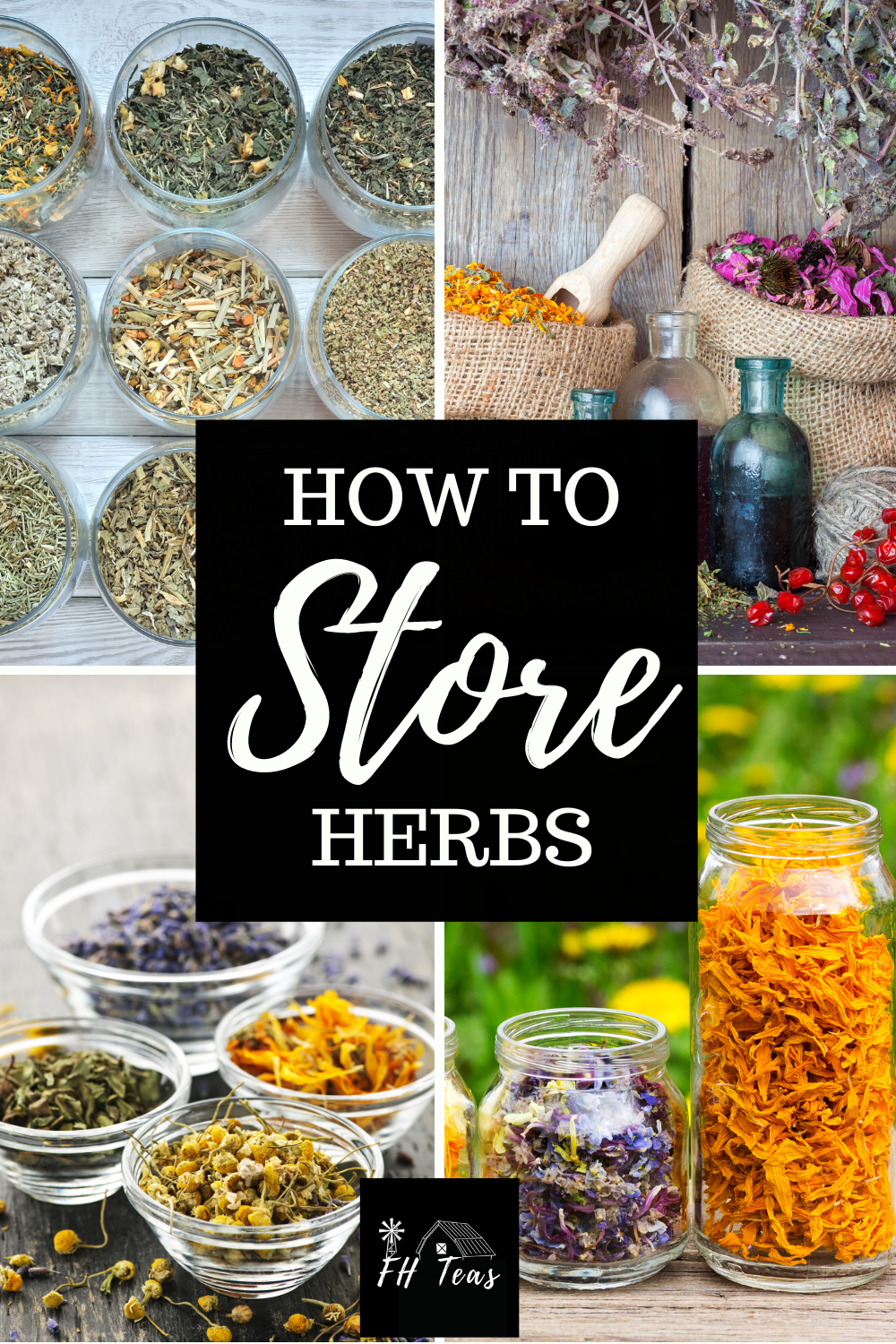
What is the best way to store all of these herbs that I've grown and dried?
How do I make them last and make sure they don't go bad?
How do I know when they go bad?
With 10+ years of experience in dehydrating and 7 years of blending teas, we have been asked these questions many times. They are some of the most common problems when it comes to preserving that harvest that you worked so hard on and are depending on.
The good news is with a little knowledge, these issues won't seem so scary anymore.
Before we start:
This post may contain affiliate links throughout. Translation: We get a little kick back for sharing certain products, at no additional cost to you, should you choose to purchase said items. And - thank you for supporting our farm and family! Read the full disclaimer here.
The peace of mine that well-stored herbs brings saves the stress and worry of not having what you need when you need it. It also helps keep everyone safe. Sound organizational systems for medicinal herbs will help save money because it is easy to take inventory and know what you have and what you don't have. Proper storage also helps others in your family access the herbs easily and know where to find things when the herbalist of the house isn't feeling well.
Before we dive into those storage tips though let's make sure that our herbs have been well cleaned and prepared.
Cleaning & Drying Herbs

When it comes to proper storage of your herbs you want to make sure that you have good quality herbs to begin with. Storing old, improperly dried herbs is going to cause them to degrade faster. Those are things that storage tips are just not going to help.
When you are harvesting herbs many of them will not need to be washed or rinsed if you have grown them in a clean environment, they are free from animal residue, no dogs or cats have access to them etc. It's best to avoid washing or rinsing them as much as possible because the medicinal qualities are often found in the essential oils of the herbs which are separated when rinsed with water. If you do need to rinse or wash do so as gently as possible and then pat dry.
It is also important that the herbs are dehydrated at the proper temperature for the herbs,
fruits or botanicals so that they retain their medicinal properties. We want to make sure the heat is not too high or they will burn and not be useful. Also it is important to make sure they are dried at high enough heat that they don't end up molding in the process. For more details on dehydrating herbs, fruits and botanicals we take a deeper dive here in this blog post.
Where to Store Herbs

The best place to store herbs is to access location and in an area near where you will be making your herbal preparations. The best-used tools in any workspace are comfortable to access and located where they will be used. There are two essential things to remember when picking a space, though:
- That the herbs are stored out of direct light unless used within 2 months
- That they are kept free from moisture and at room temperature
After those two things, it is really up to you where you store them. Perhaps you have space in your culinary spice cupboard or rack, a shelf hung on a wall, an area in your pantry, maybe the medicine cabinet? The location and size of the space you have will determine the containers that you store your herbs in.
What Type of Containers to Use for Storage

The containers you use to store herbs really depend on what will fit your space, though it is best to look for glass or metal containers over plastic containers.
Plastic containers can soak up some of the aromas from the herbs and stain and then cross-contaminate herbs you may store in that container later. We love to use canning jars because they are simple, abundance, and easy to find at an affordable price.
Canning jars come in many different shapes and sizes and have multiple purposes (canning, fermenting, kombucha, kefir, etc.). Canning jars also come in amber and cobalt colors if you are displaying herbs in a place where they see moderate light.
Of course, any container you have that is airtight will do!
Labeling Herbs & Teas

It is imperative to label your herbs and teas because we want to make sure that:
- We know what herb is in the jar (for inventory and safety!)
- That we know the date and how old the herb is
- When labeling teas that we blended that we know what ingredients are in that tea.
Labeling is a must when it comes to storing herbal medicines and medicinal teas! We want to use the right herbs for the right issues and make sure that everyone stays safe.
It also helps us save money because we know how much of which herb we have, what we need, and how old or new the herbs are. You may also want to include the lot number if the herbs were bought from another company. Even the date you got them and any date on the package. Don't forget to include any precautions with the herbs.
Gel packs or no gel packs?

Many of us are familiar with desiccants or silica gel packs. They are often found in new pairs of shoes, in a new purse, or in herbal supplements. These silica packets are used to remove moisture or keep moisture out of products. Silica is a naturally occurring mineral, is safe to use in food. But should we be putting it in our dehydrated herbs, fruits, and botanicals?
While silica gel packs are not required when storing your dehydrated goodies, they can be helpful if you store your goodies for the long term. They will help keep any moisture at bay, which may be useful if you are concerned about your herbs' quality. Using desiccants is really up to you. If you are wanting to make your own, there is a great tutorial here by Prepsteadder.
How long are Dried Herbs Good for?
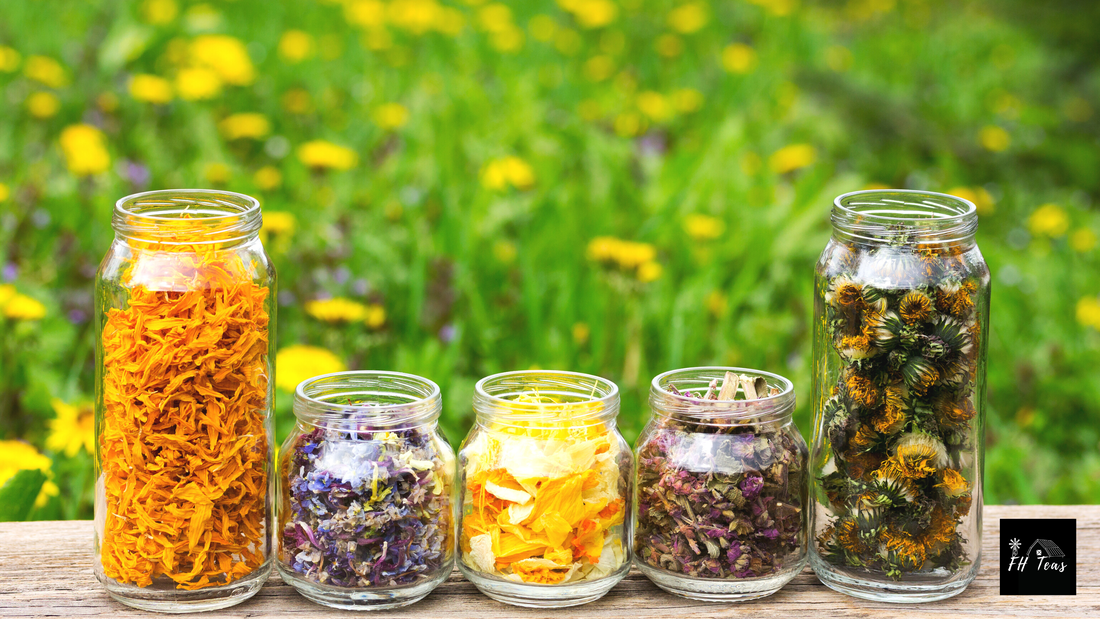
A question we get very often, whether it be dried herbs or our loose leaf teas.
How long are these good for?
When do they expire?
Will they go bad?
Remember we mentioned the 2 enemies to dried goods were moisture and light, we might add a 3rd in there for this one: time. Dried products don't go bad, like the foods in your fridge. They don't taste funny, but they might mold if moisture got to them or were not appropriately dried.
Dried goods instead tend to degrade. We can tell using our senses if they are good or not: Do they look faded, dull, or burnt? Are they tasteless? Do they still have a vibrant aroma? Is there color bright like when they first came out of the dehydrator? These are all great ways to tell if your herbs are still useful.
I've had herbs for 3-5 years that work great, and some that I bought that were new to me and obviously had been sitting in their bag for way too long! There really isn't an expiration date, per se, to go by, just our senses and knowledge of what they should look, taste, and feel like, which we garner overtime.
Vacuum Sealing Herbs for Long-term Storage

Another great way to help extend the life of your dried herbs, fruits, and botanicals is to vacuum seal them. Vacuum sealing can be done using canning jars or plastic bags. Vacuum sealing will help preserve the life of the herbs. This process ensures that there is less oxidation in the container that you are storing the herbs in. Now, these herbs are still subject to degradation by light and heat, but it can help with the long term, properly stored herbs.
If you are going to be using the herbs in 6 months or less, I probably wouldn't recommend going through the trouble of vacuum sealing them. If they are vacuum-sealed in a jar, the extra work of re-sealing may not be so bad, but it wouldn't be necessary if used quickly.

https://www.growcreatesip.com/medicinal-teas-in-small-spaces
Now that we have answered those common dehydrating questions like the best way to store all of these herbs, how to make them last, and how do I know when they go bad? You are on your way to preserving the harvest you have worked so hard for and turning those common herbs into powerful medicines. Now you don't have to worry about how to know if your herbs are still useful. If you would like to learn more about taking common herbs and turning them into powerful medicines, make sure to check out our course Medicinal Teas in Small Spaces.
I"d love to know though, did you learn something new about storing your dried herbs and botanicals? What are your favorite storage place and container? Let me know in the comments below.









